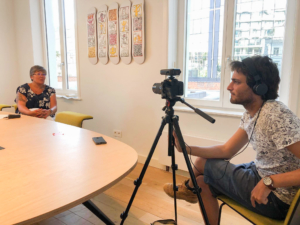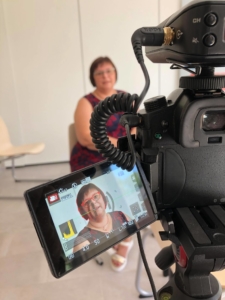That’s a wrap !
How are police interviews and therapeutic interviewing of trafficked children carried out? Why is the role of the interpreter so important? In the framework of the CAPISCE project, we had the chance to interview Nadia Ounifi (coordinator at the Federal Police) and Charline Malaise (psychologist at Esperanto) who explained the points of attention in their work with interpreters.
The CAPISCE project aims to create training modules for interpreters working with child victims of human trafficking. Nadia Ounifi and Charline Malaise presented the central role that interpreters play in providing interpretation that will guarantee the right of children to be heard and understood.

In her interview, Nadia Ounifi explains the protocols used to interview children. These protocols were established in order to collect the child’s testimony in a progressive, respectful and non-suggestive manner. It is essential that the interpreters are aware of these protocols so as not to distort the questions asked by the interviewers or the words of the child being interviewed

Charline Malaise explains that a child victim of trafficking can suffer many traumas that are being expressed in their verbal and non-verbal attitudes. In order to ensure the good quality of the interpretation, interpreters must be aware of the complicated history of the child victim so as not to be destabilized during interviews. It is the psychologist’s responsibility to prepare the interpreter so that he or she can adopt an empathetic attitude without being overwhelmed by his or her own emotions.
Thanks to Nadia and Charline for sharing their expertise with us!
